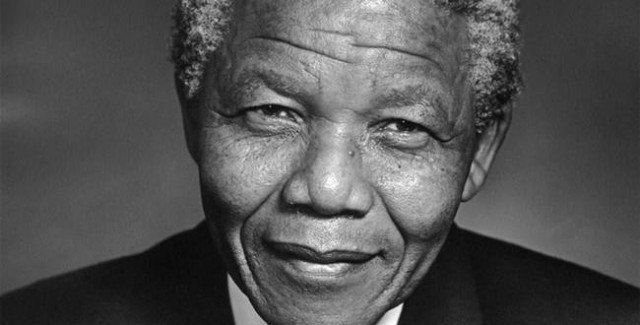Mandela, Nelson
1918–2013
President of South Africa
Nelson Mandela is one of the best-known and most influential political leaders in Africa. Imprisoned for many years because of his activities against apartheid, he later became the first black president of SOUTH AFRICA. For many South Africans, Mandela symbolized the hope for black equality.
Born in the Transkei region of South Africa, Mandela was the son of a XHOSA chief. Although a member of a royal family, he could not inherit the chieftainship because his mother was his father's third wife. After his father's death, the nine-year-old Mandela was sent away to school. When he finished his primary education in 1938, he gained admission to Fort Hare College. However, he was expelled two years later for taking part in a strike.

In 1941 Mandela moved to the city of JOHANNESBURG, where he worked as a policeman and took correspondence courses to complete his college degree. He then studied law at Witwatersrand University. In law school, Mandela met Indian and white students and came in contact with many radical ideas. In 1944 he joined the African National Congress (ANC), a black political movement, and eventually became one of its leaders. When the South African government began to establish its apartheid policies after 1948, the ANC became an important source of opposition. The group organized work stoppages and other activities to protest and defy the racist laws. Following an outbreak of violence in 1952, the government banned several ANC leaders, including Mandela. He was not allowed to move about the country freely or to associate with other people. The government placed banning orders against Mandela again in 1953 and in 1956.
In 1955 the ANC adopted a document called the Freedom Charter, which called for the establishment of a nonracial, democratic South Africa. The South African government declared the charter to be treason and arrested Mandela and more than 150 other ANC leaders. However, when they were brought to trial, all were acquitted.
Racial tensions led to violence in 1960, when police killed 69 protesters during a peaceful demonstration against apartheid in the Johannesburg suburb of Sharpeville. In response to the killings, black South Africans held a massive work stoppage. The government declared a state of emergency, banned the ANC, and arrested thousands of blacks. Mandela was again among those arrested, but he was soon released. He resumed participation in antiapartheid activities, working in secret to avoid another arrest.
Mandela decided that stronger action was needed to oppose apartheid. In 1961 he founded a group called Umkhonto we Sizwe (Spear of the Nation) to organize acts of sabotage against the government. By the end of 1961, the group was bombing government sites. Mandela left South Africa secretly and traveled to other African nations to raise money and to set up training bases for Umkhonto members. When Mandela returned to South Africa in the summer of 1962, he was arrested and brought to trial on charges of leading a strike and leaving the country illegally. He received a sentence of five years in prison. Two years later, the government sentenced him to life imprisonment for sabotage and for attempting to overthrow the government through violent revolution. Mandela spent 28 years in prison. Yet black South Africans and people in other countries continued to support him and his struggle against apartheid.
Unrest and threats of revolt, as well as international criticism, shook the South African government. In 1988 it began negotiating with Mandela over the conditions of his imprisonment. Two years later, South African president Frederik Willem DE KLERK released Mandela from prison. The two men then worked together to dismantle the apartheid system and prepare South Africa for a nonracial democracy. Because of their efforts to bring about peaceful change, de Klerk and Mandela shared the Nobel Prize for peace in 1993.
In 1994 South Africa held the first elections in its history in which all races could vote. Mandela became the nation's first democratically elected president. He worked to improve the economic and educational conditions of blacks and to root out the last elements of apartheid. In 1999 Mandela chose not to run for a second term as president and retired from active politics. (See also Apartheid.)